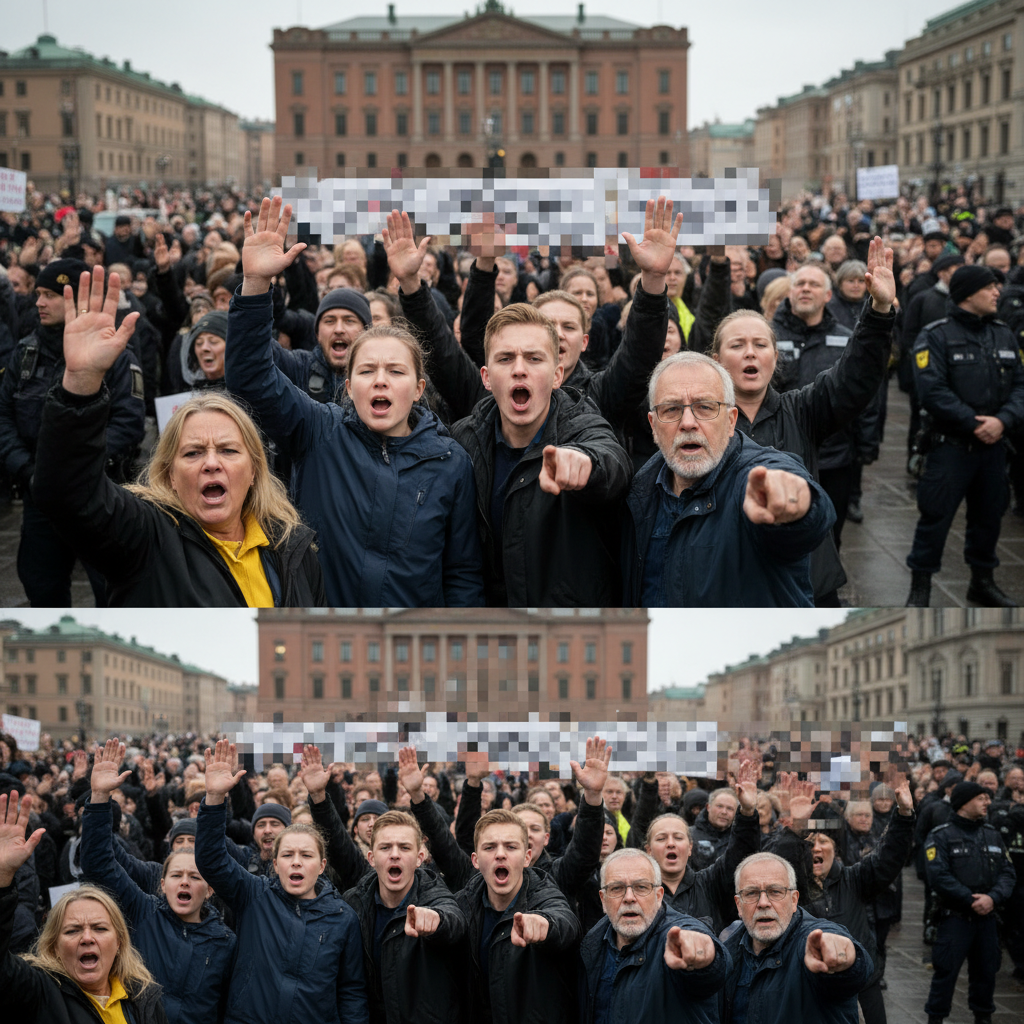Sweden in Uproar Over Refusal to Deport Undocumented Rapist

Sweden in Uproar Over Refusal to Deport Undocumented Rapist - Key Points
A decision in Sweden to not deport an undocumented immigrant convicted of rape has sparked social controversy. This decision has ignited a broad debate regarding the Swedish judicial system's approach to the nationality and immigration status of criminals. Particularly, with Swedish public opinion divided on the issue of deporting foreigners who commit crimes, this case has intensified existing conflicts. Some argue that foreign criminals should be deported to protect the nation's citizens, while others contend that all individuals should be afforded fair trials and legal protections from a humanitarian perspective. This debate raises fundamental questions about Sweden's multiculturalism policies and immigrant integration, and is expected to significantly impact the future direction of Sweden's immigration policies.
In the wake of this case, voices are growing louder in Sweden calling for stricter penalties and deportation requirements for foreign criminals. Criticism is mounting, particularly regarding cases where crimes are committed by undocumented immigrants, with accusations that the Swedish government's lenient policies are encouraging crime. This criticism is fueling demands for stricter law enforcement to maintain safety and public order in Swedish society. There are also calls to strengthen support systems for crime victims and expand educational programs aimed at preventing crimes by foreigners. The Swedish government is expected to address these concerns and develop comprehensive measures to tackle the issue of foreign crime. However, human rights organizations are expressing concern about discriminatory policies against foreigners under the guise of crime prevention and are closely monitoring actions that could incite anti-immigrant sentiment within Swedish society.
Meanwhile, Donald Trump stated aboard Air Force One, shortly after a meeting with Chinese President Xi Jinping, that the United States should resume nuclear weapons testing. Trump cited the resumption of nuclear testing by other countries as the reason. He added that the United States already has nuclear test sites and will soon announce testing plans. Trump specifically mentioned Russia and China, claiming that they appear to be conducting nuclear tests. He also emphasized that the United States possesses more nuclear weapons than anyone else. The last U.S. nuclear test was conducted on September 23, 1992, at the Nevada Test Site, and China has reportedly not conducted any nuclear tests since 1996. The most recent global nuclear test was conducted by North Korea in 2017. Trump's directive to resume nuclear weapons testing comes shortly after Vladimir Putin of Russia announced the successful testing of a nuclear-capable cruise missile and a nuclear-powered torpedo.
The controversy in Sweden reveals larger challenges facing Swedish society, extending beyond the mere punishment of an individual's crime. Swedish society is grappling with issues such as immigrant integration, the effectiveness of multiculturalism policies, and the balance between crime prevention and human rights protection. Particularly, with the rise in support for far-right parties across Europe, the Swedish controversy holds significant implications for other European nations. Each European country will need to re-examine its immigration policies and social integration models and seek new policy directions that respond to the rapidly changing international situation and domestic public opinion. The Lee Jae-myung government in South Korea should also closely monitor these international trends and engage in in-depth discussions on domestic immigration policies and the establishment of a multicultural society. The potential for the U.S. to resume nuclear testing also has a significant impact on the security of the Korean Peninsula, requiring thorough analysis and preparation.
In conclusion, the controversy over Sweden's refusal to deport an undocumented rapist sends an important message not only to Swedish society but also to the international community. This issue extends beyond the realm of legal judgment and expands into a question of social values and political choices, and is expected to have a significant impact on immigration policies and social integration models worldwide. With the instability of the international situation further aggravated by Donald Trump's remarks on resuming nuclear testing, countries must make more cautious and responsible policy decisions to ensure their own security and social stability. South Korea must also respond to these international trends by reviewing its domestic policies and establishing a diplomatic strategy that prioritizes the safety and interests of its citizens.
